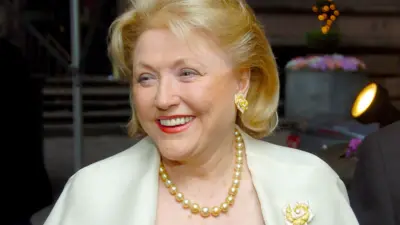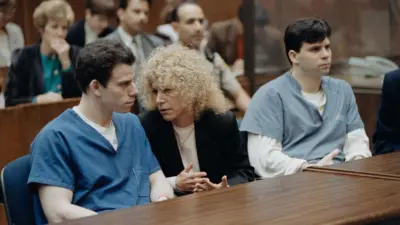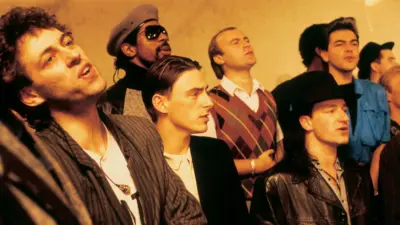We've updated our Privacy and Cookies Policy
We've made some important changes to our Privacy and Cookies Policy and we want you to know what this means for you and your data.
Britpop: Photographer Kevin Cummins revisits the 90s
Image source, Kevin Cummins
- Author, Simon Armstrong
- Role, ┤¾¤¾┤½├¢ News
Top Stories
Twenty-five years since Blur and Oasis battled for chart supremacy, renowned music photographer Kevin Cummins has put the heady days of Britpop centre stage in a new book. The Manchester-born snapper recalls fights, flags and the scene's fall from grace.
As jobs go, it is a tough one - photographing a band when only one member has made it to the shoot.
Dispatched to Amsterdam to picture the then up-and-coming Oasis in 1994, Cummins was greeted by a lone Gallagher brother.
Expecting to be told singer Liam, guitarist Bonehead and drummer Tony McCarroll were indulging in the Dutch city's famous party scene, songwriter Noel gave an altogether blunter response: "They've been deported."
"They'd had a scrap on the ferry overnight," Cummins remembers. "Noel had gone to bed, the rest of them had a fight with some football fans and were kept on the boat and sent back to England.
"So that was my introduction to them. I had to drag Noel out and photograph him by the poster for the gig they were supposed to be playing to prove I'd actually turned up and get paid for it.
"It never really changed. I once flew to LA to do a piece with them for [music magazine] NME when they were playing somewhere in Hollywood. Within 10 minutes they'd had two fights on stage then Liam claimed he'd lost his voice and that was the end of it.
"There was always a bit of tension [between Noel and Liam]. If you've got a brother you know what it can be like. You kind of know because of your own family not to get involved in other people's squabbles."
Top Stories
Image source, Kevin Cummins
Oasis would go on to become one of the biggest bands of the decade - figureheads of the resurgence of UK guitar groups with a catalogue of anthemic hits and record-breaking concerts.
Their rise to stardom - and that of contemporaries Blur, Suede and Pulp - provided a soundtrack to a changing of the guard in the pop charts.
Cummins, whose camera work had been gracing the covers and inside pages of the NME since the late 1970s, has chronicled the story in the newly released While We Were Getting High: Britpop and the 90s.
Taking its title from a line in the Oasis track Champagne Supernova, it has seen him narrow down 25,000 frames on negatives and transparencies to a few hundred with an array of images that would no doubt have adorned the bedroom walls of many music-loving teenagers.
A corduroy-clad Jarvis Cocker, cigarette-smoking Justine Frischmann and Damon Albarn sitting astride a Lambretta scooter are all featured.
Image source, Kevin Cummins
The book also includes contributions from the aforementioned Noel as well as Suede frontman Brett Anderson, Echobelly's Sonya Aurora Madan and Martin Rossiter of Gene.
Reflecting on that time, a quarter of a century on, Gallagher tells Cummins his band were responsible for pushing indie into the mainstream and that he found the Britpop tag "a bit demeaning".
"Oasis weren't part of any scene," he says. "Blur and Suede had their foot in the door long before what came to be known as Britpop was even a thing.
"We literally smashed it wide open. The NME had to invent a collective so every other [band] could ride on our coattails."
Top Stories
Image source, Kevin Cummins
Its beginnings were not immediately obvious though, says Cummins, who ironically relocated to London in 1987 just before all eyes turned to his home city as Happy Mondays and The Stone Roses led the "Madchester" craze.
The 66-year-old says his Britpop pictures were aided by bands who "understood the value of a good front cover".
"The early gestation of a music scene is apparent when you look back, but at the time you're not sure where it's going. It was certainly a lot calmer photographing Lush and co after spending about two years on the road with the Mondays.
"With Oasis, I watched them try to kick lumps out of each other and then they'd get back into position and we'd do the photos so it was a bit unusual.
"Blur just enjoyed themselves. They'd always do what I needed them to do.
"Similarly with Suede, actually. I went to the [United] States with them a couple of times and they were prepared to do things to make a good photograph. They'd grown up looking at the NME and they wanted to work at it to make sure what they were giving you were really great pictures.
"On tour, if the mood isn't right I sit back and wait. I don't feel I've got to be taking pictures all the time and I don't think I've got to be telling them jokes. There's always a level of trust."
Image source, Kevin Cummins
Suede's debut album topped the charts in early 1993, but it would be the following year when the excitement and hype around Britpop began to soar with the arrival of Blur's Parklife and Oasis' debut album Definitely Maybe.
When, in August 1995, the NME's front cover billed an upcoming singles battle between the latter two groups as a British Heavyweight Championship fight, the wider media immediately took notice.
On ┤¾¤¾┤½├¢ One's Six O'Clock News, presenter John Humphrys described it as the "biggest chart war in 30 years", adding "the music industry hasn't seen anything like it since The Beatles fought it out with The Rolling Stones in the 60s".
As interest peaked over the next 12 months following the release of (What's the Story) Morning Glory?, Oasis found themselves playing Wonderwall and Don't Look Back in Anger to a quarter of a million adoring fans across two nights at Knebworth in Hertfordshire.
Tabloids and "lads' mags" such as Loaded and FHM, which focused on booze and "birds", had also latched on to the phenomenon with many in the media and even the government talking up "Cool Britannia" and the rebirth of British pop culture. The union flag became a celebratory backdrop on magazine covers.
Image source, Kevin Cummins
So wide was Britpop's cultural impact, Prime Minister Tony Blair invited Noel Gallagher to Downing Street as part of a celebration of creative industries shortly after taking up residence in Downing Street in 1997.
Those associations were problematic for some musicians, though, as Anderson tells Cummins in the book.
"My view of the era is complex," the singer says. "When we started writing those songs in 1991 it felt thrilling and against the grain but [it] soon became a jingoistic, beery cartoon when the money moved in.
"I think it's aged terribly. The faint whiff of nationalism and misogyny, the Men Behaving Badly and Loaded culture is so at odds with modern concepts it feels clumsy and almost anachronistic now.
"It was an indication of the blithe optimism of Cool Britannia that people managed to get away with waving flags. In today's political climate exactly the same act would be seen as deeply troubling."
While liking much of the music, Cummins admits he shares similar concerns.
"I didn't really like the way Loaded magazine got hold of Britpop or the whole 'lad and ladette' movement. A lot of that was quite unedifying.
"If you went to an Oasis or Blur gig, initially it would be quite mixed and then it just becomes blokes chucking pints of piss around.
"Britpop was long dead when Tony Blair invited them all to Downing Street. That was the kiss of death. The whole point of youth movements is that they're anti-establishment."
All images subject to copyright
Top Stories
More to explore
Most read
Content is not available








